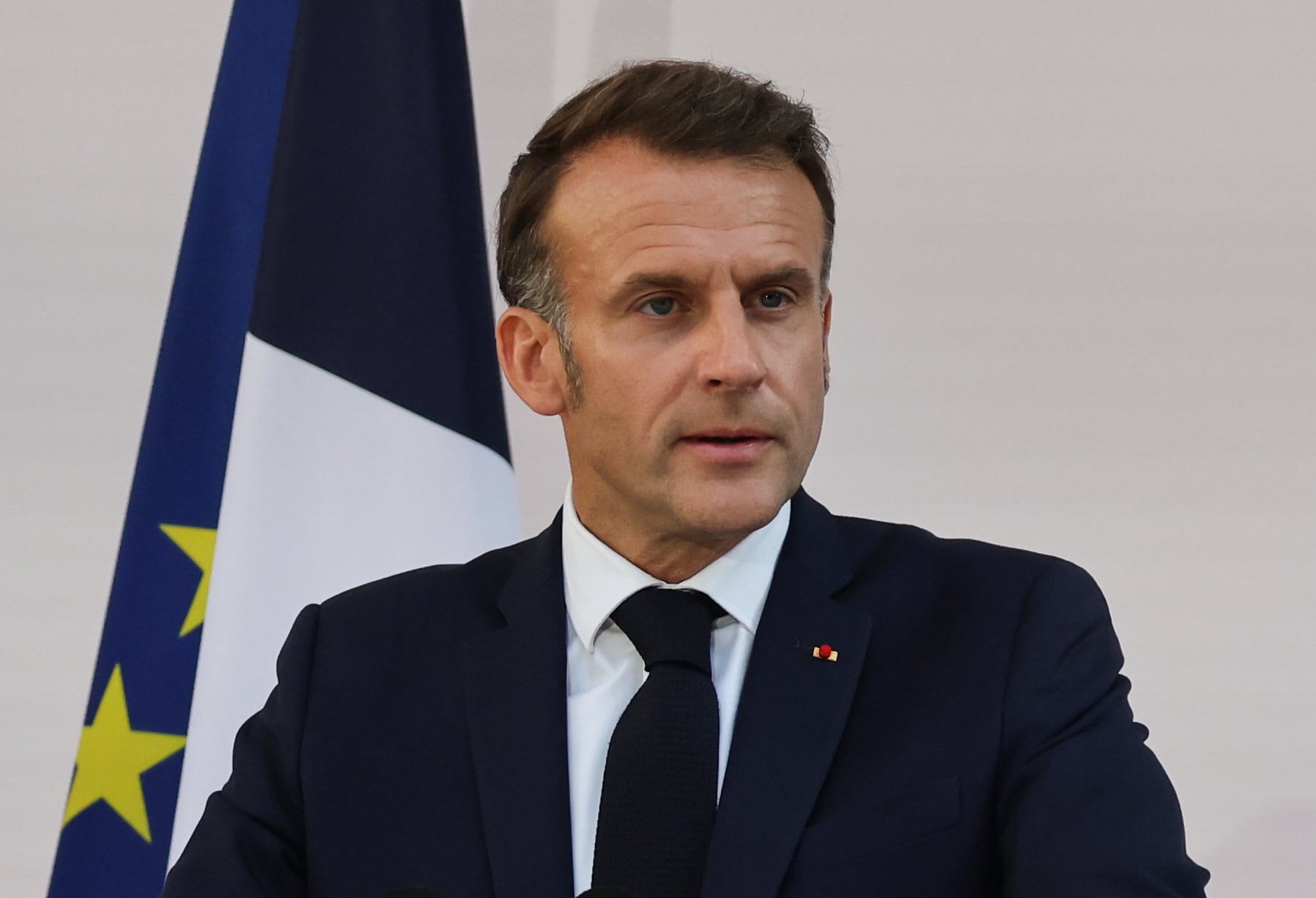ParisEven if it is unlikely to have an immediate effect on Gazans or Israel’s battle with Hamas, France’s daring move to recognize the state of Palestine could help change the way people talk about the Middle East’s future.
French President Emmanuel Macron is trying to hit a blow to diplomacy and the notion that war rarely brings peace in a world where countries are once again using military force to impose their will on others, most notably Russia in Ukraine and the United States and Israel with their recent strikes on Iran and its nuclear facilities.
Suggested Videos
Macron must also consider his legacy as he approaches the end of his second and last term as president, which is less than two years away. When history is written, failing to take strong action as a humanitarian catastrophe unfolds in Gaza may be a stain.
As the head of a nuclear-armed, economically and diplomatically strong nation that also holds a seat at the United Nations’ top table as one of the five permanent members of its security council, Macron has the ability to shape global events.
There are domestic risks associated with being the first industrialized nation to make this jump within the G7. Macron is walking a tightrope of public opinion as the leader of the nation with the largest Muslim and Jewish populations in Europe. His remarks may anger some voters while appeasing others, as evidenced by the sharply split political responses in France to his decision, which was made public on X on Thursday night.
Macron, however, is indicating that France’s support for Israel can only go so far after adamantly supporting Israel’s right to defend itself against Hamas and its October 7, 2023, attack that started the conflict.
Benjamin Netanyahu, the prime minister of Israel, condemned the move by one of his nation’s closest European friends. In a statement, he stated, “Such a move rewards terror and risks creating another Iranian proxy, just as Gaza became.” Under these circumstances, a Palestinian state would serve as a springboard for the destruction of Israel rather than coexist peacefully with it.
A step, but not a wand of magic
With Gaza in ruins and the occupied West Bank seeing an increase in Israeli settlement, the prospect of Palestinians and Israelis coexisting peacefully in their own states has never seemed more improbable. Macron’s statements won’t alter that on their own. The French leader’s message, however, is that no matter how unrealistic it may appear, the hope of a two-state solution reached via negotiation must not be allowed to perish.
The only way to satisfy the justifiable desires of both Israelis and Palestinians is to find this solution. In a letter to Palestinian President Mahmoud Abbas, Macron reaffirmed his decision to recognize Palestine as a state and stated that it must now be implemented as soon as feasible.
The likelihood of a negotiated resolution to the Middle East issue appears to be fading. “That is not something I can accept,” he remarked.
The initial effects will probably be felt in global capitals rather than Gaza, where governments may feel pressured or inspired to follow France’s example. Due to their economic and diplomatic influence, other G7 countries are receiving more attention.
According to David Rigoulet-Roze, a researcher at the French Institute of Strategic Analysis, Macron’s announcement would set a precedent since it would be the first Western nation in the G7 to do so, perhaps setting an example for others.
Among the European nations that have recognized Palestine as a state, France will be the largest, most populated, and most powerful, despite the fact that over 140 nations have done so.
Yossi Mekelberg, a senior consultant fellow at the London-based think tank Chatham House, stated that while it generates some minor momentum, it is insufficient.
“France deserves congratulations, and Macron deserves congratulations for having the guts to do that,” he remarked.
A change in the major powers’ balance
The only permanent members of the U.N. Security Council to acknowledge Palestinian statehood up until this point were China and Russia. When Macron fulfills his pledge at the U.N. General Assembly in September, France will follow suit. With the addition of the three new members, the only permanent members of the Security Council that do not recognize Palestine as a state will be the United States and the United Kingdom.
France’s move is unlikely to cause drastic and quick change for Palestinians on its own because the so-called P5 countries disagree on a number of other topics, such as trade, Ukraine, and climate change. However, in any debate on Middle East solutions, the United States, Israel’s most significant friend, and the United Kingdom may find themselves more isolated among the major nations, if only numerically.
On Friday, U.S. President Donald Trump said that what Macron says is irrelevant and rejected his choice. Nothing will change as a result.
The United Kingdom might be more receptive to France. Now that Brexit is over, the United Kingdom and France are getting closer, especially in their support of Ukraine. Trump might be the odd man out among the big five countries of the Security Council when it comes to Palestinian statehood if British Prime Minister Keir Starmer adopts Macron’s strategy.
In a statement released on Thursday, Starmer expressed increased concern over the humanitarian situation in Gaza, calling the suffering and famine there “unspeakable and indefensible.” He suggests that war must end first, but he doesn’t seem prepared to make the same bold move as Macron.
According to Starmer, the Palestinian people have an unalienable right to statehood. We will move closer to a two-state solution and the acknowledgment of a Palestinian state if there is a truce.
–
Contributions were made by AP writers Michelle Price in Washington and Jill Lawless in London.








